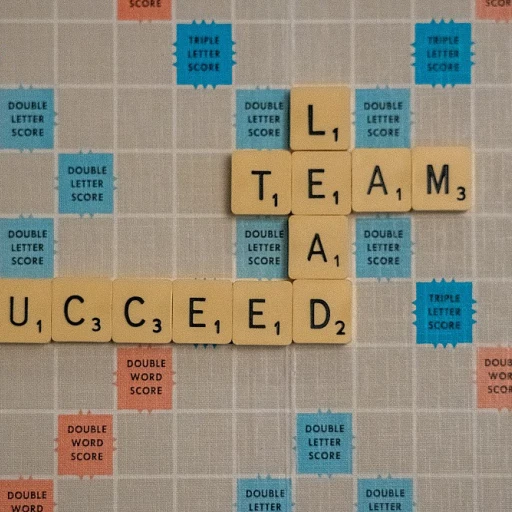
Understanding Growth Mindset in the Workplace
Embracing a Thriving Workplace Culture
In the dynamic world of modern organizations, adopting a growth mindset in the workplace has become more than just a buzzword; it is a strategic approach that influences not only the success of a company but also the development of its employees. A growth mindset, fundamentally different from a fixed mindset, encourages a culture where continuous learning and improvement are prioritized. It inspires individuals and teams to transform challenges into learning opportunities and to view setbacks as a natural part of the innovation process.
The impact of having a growth-oriented mindset in the workplace is profound. When leaders champion this philosophy, they not only demonstrate a commitment to their own leadership development but also actively create an environment where team members are motivated to learn, grow, and excel. This forward-thinking approach to leadership cultivates a vibrant mindset culture that embraces success through continuous improvement.
Organizations and leaders aiming to foster a learning culture must first understand what a growth mindset entails and how it differs from a fixed mindset. A fixed mindset holds that abilities and intelligence are static, limiting individuals from pursuing new and unfamiliar learning opportunities due to the fear of failure. In contrast, a growth mindset embodies the belief that skills can be developed through dedication, valuable feedback, and perseverance, thus creating a resilient foundation for long-term success.
Moreover, a growth mindset encourages team dynamics that are conducive to innovation and problem-solving, essential competencies in today’s fast-paced environment. Leaders can effectively nurture this mindset by demonstrating and rewarding behaviors that prioritize adaptability, effort, and embrace constructive feedback. Engaging with resources that enhance leadership skills through targeted training can further empower leaders to integrate these principles into their daily practices, thereby elevating the capabilities of their teams and organizations. For more on how to enrich leadership skills, explore this resource.
The Leader's Influence on Mindset
The Power of Leadership in Shaping Mindsets
In any organization, leaders play a pivotal role in shaping the mindset culture. Their influence extends beyond mere management; they are the architects of an environment where growth and learning are either encouraged or stifled. Leaders who embody a growth mindset inspire their teams to embrace challenges, view failures as learning opportunities, and continuously seek improvement.
Leadership development is crucial in fostering a mindset that prioritizes growth. When leaders demonstrate a commitment to continuous learning, they set a powerful example for their team members. This commitment to learning and development creates an environment where employees feel empowered to take risks and innovate. By modeling a growth mindset, leaders create opportunities for their teams to engage in problem-solving and creative thinking.
Creating an Environment for Continuous Improvement
Leaders who prioritize continuous improvement understand the importance of feedback in growth mindset development. Constructive feedback is a tool for learning, not a means of criticism. When leaders provide feedback that focuses on effort and improvement, they help employees see challenges as opportunities for growth. This approach encourages a culture where team members are motivated to learn and develop their skills.
Moreover, leaders who foster a growth mindset culture recognize the value of long-term success over short-term gains. They understand that cultivating growth within their teams requires patience and persistence. By promoting a culture of continuous learning, leaders can drive innovation and success within their organizations.
For those looking to elevate their leadership skills and become effective mindset leaders, exploring resources and strategies for leadership development can be beneficial. For more insights on becoming a practice leader, consider reading this article.
Strategies for Leaders to Cultivate a Growth Mindset
Encouraging a Learning Environment
Leaders play a crucial role in establishing a culture of continuous learning within organizations. By fostering a growth mindset among team members, leaders can create an environment where learning and development are woven into the very fabric of the organization. This not only fuels innovation but also supports the long-term success of employees and the organization as a whole.
Promoting Opportunities for Growth
To cultivate an atmosphere of continuous improvement, leaders need to provide ample opportunities for growth and learning. Organizing workshops, seminars, and other educational initiatives can encourage employees to expand their knowledge and skills. Leaders should also encourage employees to embrace new challenges and view them as learning opportunities that lead to personal and professional growth.
Facilitating Open Communication
Open communication is key to developing a mindset culture that values feedback and innovation. Leaders must practice and advocate for transparent communication channels where team members feel comfortable sharing their ideas and experiences. Constructive feedback is an essential component of this exchange, as it helps employees identify areas for development and fosters a shared sense of commitment to the organization's objectives.
Nurturing Collaborative Teams
Collaboration among team members is vital for a growth mindset to thrive. By encouraging collaboration and collective problem solving, leaders can build teams that are resilient and adaptable in the face of challenges. When teams work together towards common goals, the synergy between them enhances creative thinking and drives continuous improvement.
Recognizing and Celebrating Learning Achievements
Leaders should actively recognize and celebrate both individual and team successes, as this boosts morale and motivates employees to continue pursuing growth. Celebrating achievements related to learning and development emphasizes the importance the organization places on cultivating a growth mindset culture. This, in turn, creates a positive cycle of motivation and achievement.
Overcoming Challenges in Cultivating a Growth Mindset
Handling the Hurdles of Growth Mindset Cultivation
Developing a growth mindset within an organization doesn't come without its hurdles. Leaders play a crucial role in recognizing and overcoming these challenges to ensure that the transition from a fixed mindset to growth mindset among employees is smooth and persistent. One typical challenge is resistance to change. Employees may feel comfortable with the status quo and express reluctance to embrace new learning opportunities. To address this, leaders should focus on creating an open environment where continuous learning and development are celebrated. Recognizing early adopters and encouraging others by highlighting their successes helps to lay a foundation for broader organizational buy-in. Another challenge is ensuring that team members receive constructive feedback that encourages development rather than criticism that reinforces a fixed mindset. Feedback should be framed constructively, focusing on improvement and growth opportunities rather than past shortcomings. In doing so, leaders can stimulate learning and innovation, motivating employees to tackle problems from a fresh perspective. Additionally, creating a balance between setting high expectations and providing the necessary support for employees to achieve these expectations can be daunting. Leaders need to ensure that goals are challenging yet attainable, providing team members with tools and resources for success. This balance encourages individual and team growth, fostering a mindset culture where long term success becomes achievable. Leadership development programs aimed at equipping leaders with the skills to cultivate a growth mindset culture can also be beneficial. By focusing on continuous improvement and problem solving, leaders not only foster their own growth but also encourage their teams to innovate and grow. Ultimately, it takes strategic effort and a leader's commitment to overcome the challenges in cultivating a growth mindset. Through developing effective feedback loops, promoting continuous learning, and providing support, leaders create thriving environments where everyone can embrace growth and development.The Role of Feedback in Growth Mindset Development
The Importance of Constructive Feedback
Feedback plays a critical role in developing a growth mindset among employees and teams. It serves as a tool for leaders to guide learning, showcase development opportunities, and promote continuous improvement. When leaders create an environment where constructive feedback is welcomed and valued, it encourages employees to view challenges as chances to learn rather than obstacles to success. In the pursuit of cultivating growth and innovation, feedback should be specific, actionable, and focused on behaviors and processes rather than personal attributes. This approach helps reduce the risk of a fixed mindset taking root, where individuals might feel criticized or judged. Instead, feedback should aim at fostering a learning mindset, encouraging team members to explore, innovate, and develop their skills further. Creating a feedback culture involves both giving and receiving input with an open and respectful attitude. Leaders should model this behavior by showing how they themselves learn from feedback, creating trust and paving the way for transparent communication within the team. As teams become more comfortable with feedback, they will be more inclined to take ownership of their growth, actively seeking both positive and challenging assessments. In the context of long-term success, regular feedback sessions should also include reflections on past progress and discussions on future goals. This approach reinforces continuous learning and paves the way for improvement, helping to align individual development with organizational objectives. Together, leaders and employees can navigate continuous learning opportunities, turning feedback into a catalyst for cultivating growth and enhancing the mindset culture.Measuring the Impact of a Growth Mindset Culture
Evaluating the Efficacy of a Growth Mindset Environment
In the quest to foster a robust growth mindset culture, organizations must consistently evaluate the success of their efforts. This entails a comprehensive approach that not only examines individual advancements but also assesses the broader organizational impact.- Quantitative Measures: Regularly analyzing metrics such as employee performance, innovation rates, and team productivity can provide tangible evidence of the effectiveness of growth mindset initiatives. Improved employee performance and higher innovation rates are key indicators of the success of such efforts.
- Qualitative Insights: Feedback from employees and team members is a vital component in this process. By actively soliciting insights and constructive feedback, leaders can gauge how the cultural shift towards a continuous learning environment is perceived and identify areas needing further development.
- Leadership Reflection: Leaders should engage in self-reflection and seek feedback on their own growth in fostering a mindset culture. This not only helps in personal leadership development but also sets an example for the team, demonstrating commitment to continuous improvement.
- Long-Term Outcomes: Observing the long-term effects on employees' learning and development is crucial. A successful growth mindset culture promotes sustained personal and professional growth, equipping employees with enhanced problem-solving skills and opening up new learning opportunities.













